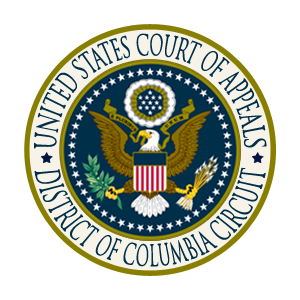
While it may not have been the results some broadcasters wanted, it could have been far worse as the US Court of Appeals for the District of Columbia Circuit ruled to uphold the Copyright Royalty Board’s rate determinations for webcasters.
In the most recent round of rate updates in October 2021, the CRB said, “Licensees must pay the Collective a minimum fee of $1,000 each year for each channel or station…The maximum aggregate minimum fee in any calendar year that a Commercial Webcaster must pay is $100,000.” They also set rates at $0.0024 per Performance for nonsubscription services like traditional OTA radio that simulcasts.
The NAB, the National Religious Broadcasters Noncommercial Music License Committee, SoundExchange, and Google all were involved in separate appeals, with the first two pushing for lowered fees and the latter duo trying to raise them.
The NAB’s case revolved around differentiating simulcasters and webcasters – separating stations that don’t give users the ability to skip or choose songs, and having a lower rate for them. The CRB shot this down saying “simulcasters and other commercial webcasters compete in the same submarket and therefore should be subject to the same rate.”
The National Religious Broadcasters Noncommercial Music License Committee’s case was content upon the CRB’s rate determination infringing upon the First Amendment’s Free Exercise Clause and the federal Religious Freedom Restoration Act (RFRA). This argument is based on their claim that noncommercial religious webcasters receive less favorable terms than NPR, a noncommercial secular webcaster.
However, the court disagreed with the Committee’s argument. The Committee’s assertion that noncommercial webcasters are subjected to higher rates under the compulsory license than NPR’s rates is unsupported by record findings. The court reasoned that the Board rightly dismissed the NPR Agreement as a benchmark for noncommercial webcasters because the Committee’s proposals based on it failed to account for significant economic aspects.
Finally, SoundExchange also argued that the royalty rate the Board set for commercial, nonsubscription, ad-supported webcasters is arbitrary and capricious and should be increased. However, the court refutes this argument as the Board never factually determined the opportunity cost value that SoundExchange is basing its argument on. As a result, its claim of arbitrary and capricious action by the CRB is invalid.
As such, everything remains as it was until the next CRB rate determination in 2026. When Radio Ink asked for comment, an NAB spokesperson said, “NAB is pleased the Court rejected SoundExchange’s aggressive and deeply flawed arguments in favor of higher digital royalty fees and acknowledged that broadcasters could pay a lower rate for simulcasts in the future. We will continue advocating for reasonable streaming rates that allow broadcasters to expand their digital offerings and stream music, which will benefit performing artists, songwriters and our tens of millions of listeners.”





